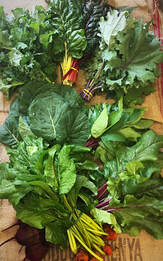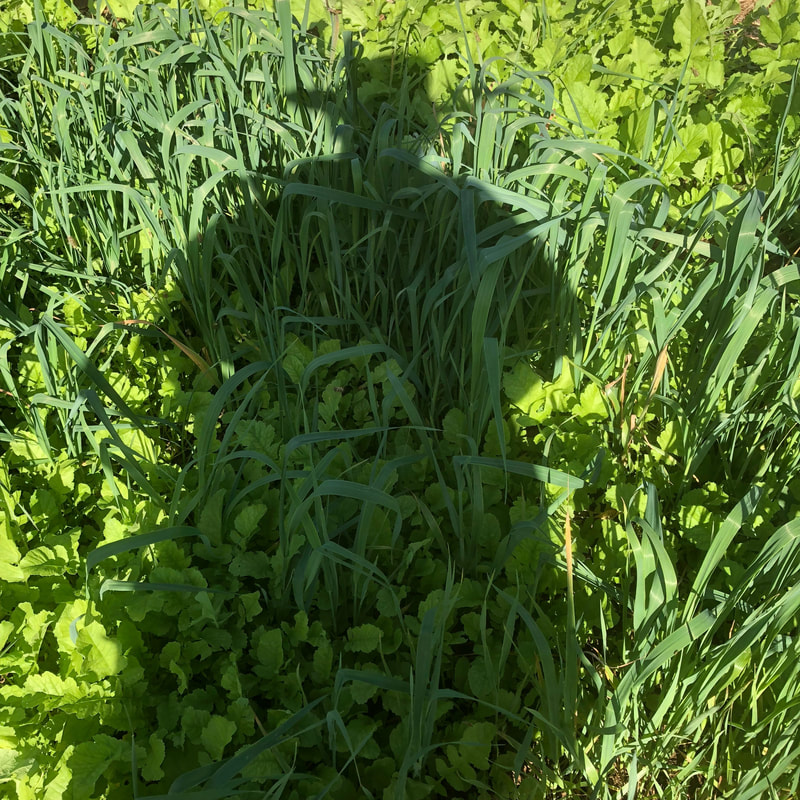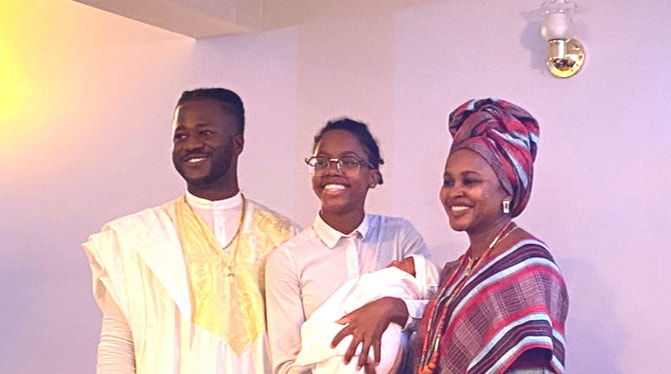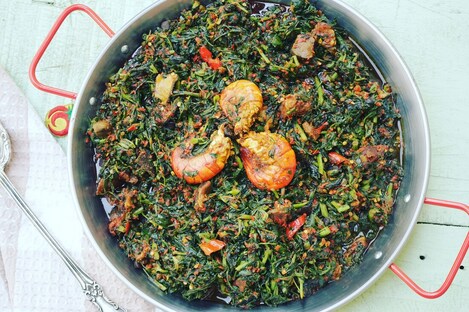 Who knew? We always knew our role in public health. The front line of health and wellness has always included farmers- the men and women that feed the soil, microorganisms, plants, and humans the vitamins, minerals, protein, complex carbohydrates, fiber and fats needed for health and wellness. Visit a farmers market, farm store or farm and you will find a farmer knowledgeable on the nutritional value of their harvest. As rates of Type 2 diabetes, heart disease and even cancer increase in young adults, farmers have become vital partners in public health. outreach. Local foods deliver the rich flavors colors and nutrients, especially complex carbohydrates , crucial for human health. Before you follow the recommendations of influencers and social media personalities that vilify carbohydrates, understand the key roles of complex carbohydrates in human physiology. Dietary fiber is a complex carbohydrate and the unsung and often overlooked hero when it comes to the health and wellness of your gut microbiome, GI tract and cardiovascular system. Soluble fiber found in beans, barley, peas , apples and carrots, help decrease sugar and fat absorption rates which can help lower blood sugar levels for everyone, including those living with pre-diabetes or diabetes. For patients with Type 1 and Type 2 diabetes, normalizing blood sugar levels can reduce the blood vessel damage to the brain , kidneys and heart as well as peripheral nerves. Who doesn't enjoy a nice bowl of black bean soup, oatmeal with apples, coleslaw or even carrot cake? Insoluble fiber found in beans, potatoes and leafy green vegetables, passes through the digestive tract with little breakdown from digestive enzymes, or stomach acid. This undigested fiber adds bulk to bowel movements, helps prevent constipation and with fermentation forms butyrate, an energy source for colon cells and the gut microbiome. Early research has shown insoluble fiber to reduce the risk of colon cancer and in some cases, decrease side effects from chemotherapy. As you can see, complex carbohydrates are not the enemy. Instead, diets high in ultra processed carbohydrates -cookies, chips, donuts french fries, and sodas- now contribute to increasing rates of preventable illnesses seen previously primarily in older adults. As a result, many from Gen Z now have a front row seat to family members, friends and loved ones living with the pain and complications from chronic and sometimes, preventable, illnesses. For this generation, food is not medicine. Food is a delicious tool for preventing illness before medicine is necessary. This is also a goal for our CSA. Our fruit and veggies in your rich home home -cooked meals can help grow strong families and strong.community members Local food for Local families. " I'm the one, not the two and my name is " Sijuade Oluwanifemi Adeboyejo. After an interesting and new age birthing experience involving a yoga ball, hot showers, and hair braiding, my first grandson, Sijuade, entered this world on July 31. His name is steeped in history and a Yoruba tradition that instills in him the hope for a bright and prosperous future that centers God and family. The joyful and loving celebrations from his grandparents, aunts, uncles, cousins and family friends from around the globe added to this unforgettable day. The youngest member of our family was born on July 31 and within a week, his naming ceremony was held at the home of his proud Nigerian grandparents. This was my first tie attending a naming ceremony, and the experience reinforced the need for community celebrations of life. Naming ceremonies do just that. They continue a tradition that showers children with love, and welcomes them to a growing community. Family and friends gathered to celebrate the blessing of Siju's ( She-ju) life and to speak into existence our hopes for a future filled with love, health, purpose and joy. During the naming ceremony , he was given at least 10 names, including Oke, which in the Yoruba language describes his veiled birth also known by the medical phrase of en caul. And after the ceremony, like in most cultures, a celebratory feast and music followed to welcome and thank the invited guests. Now to the food. The feast included jollof rice, efo riro, baked chicken, moi moi, plantains, puff puff and stewed fish. For me, the efo riro was the hidden gem on the menu, The ripe tomatoes, hot peppers, fish, dried crayfish and onions transformed the spinach into a spicy and smoky melt -in -your -mouth dish. After searching and practicing with multiple recipes, efo riro has become a staple in our home and will become a staple during our New Years' dinners along with black eyed peas. To help the new and sleep deprived parents, for the first few months I became personal chef to Siju's father , big sister and ,especially Siju's mom, Chima, to help her produce the healthiest breastmilk possible. This experience reinforced my belief that most parents, with children, especially the parents of newborns, need the support of their extended family and friends. Baby showers, and gender reveal parties are fun, but in most countries around the world, grandparents, aunts, uncles and other functional members of the village continue to support new parents with meals and household chores.
Cooking for my growing family has been a joy, an opportunity to cook familiar and new recipes, and an opportunity to taste and learn about new foods. Friends and family generously contributed fresh, homemade meals which were greatly appreciated. From egusi soup to Chapman cocktail, I became familiar with more and more traditional Nigerian cuisine - all packed with spices, antioxidants, lean meats, fish, leafy greens and vegetables. While the Mediterranean diet has been extensively researched and promoted as the gold standard for a healthy diet, more research is needed into the diets from other parts of the globe. After enjoying so many foods from Nigeria, Sierra Leone, Togo, Senegal and Liberia, foods filled with leafy greens, complex carbohydrates and spices, the African Heritage Diet, especially beneficial for the lactose intolerant among us, hits the mark when it comes to flavor and meeting the nutritional needs of children and adults. Especially the vitamin folate. Folate, Vit B9, also known as folacin, is critical for cell growth, especially in early pregnancy to decrease the risk of neural tube and birth defects. One cup of spinach contains almost 100 mcg of RDA of the recommended 400 mcg for men and women over 19 years of age. Pregnant and breastfeeding persons require 600 mcg and 500 mcg , respectfully. With a side dish of 1/2 cup of the New Year's favorite, black-eyed peas , another 100 mcg of folate is added to your plate. While the term "African Heritage Diet " references a vast continent with a diverse history of people and cuisines, a common finding is the presence of complex carbohydrates - cassava, plantain, cocoyam, yucca, millet, sorghum and maize. The metabolism of these fiber rich foods stimulates the growth of beneficial bacteria in the gut microbiome, and produces butyrate, an energy source for colon cells. Ongoing lab and clinical research increasingly notes the benefits of fiber rich diets for beneficial bacteria growth and possible colon cancer prevention. The foundation of the African Heritage Diet also includes a variety of green, leafy vegetables like malabar spinach, avuvo, jute leaf, sweet potato greens, amaranth and water leaf. Green leafy greens provide the daily vitamins, antioxidants and micronutrients but the culinary skills of the gifted hands that prepare dishes like Liberian potato greens, efo riro, groundnut stew, or malabar spinach and black-eyed pea curry, make eating your daily vitamins simple. A recent study noted that over half of U.S. 1 to 5 years of age children don't eat one vegetable daily and 30% didn't eat a fruit daily. The increasing numbers of children diagnosed with hypertension , Type 2 diabetes , obesity and NAFLD-nonalcoholic fatty liver disease- is fueled by diets packed with sugar/sugar substitute beverages, energy drinks, ultra-processed foods and calorie rich/nutritionally poor meals from restaurants, corner stores, convenience stores and vending machines. For 5 A DAY CSA, 2023 will be the year where we explore recipes that embrace the traditional foods of Africa with a focus on West Africa, in particular. With our harvest of sweet potato greens, okra, spinach, malabar spinach, avuvo, jute leaf , Paul Robeson heirloom tomatoes and hot peppers, this year promises to be a year that you won't want to miss. |

On the farm
Same Hands,
Same Goals, Different Knives Growing Healthy Families Archives
February 2023
Categories
All
|




 RSS Feed
RSS Feed